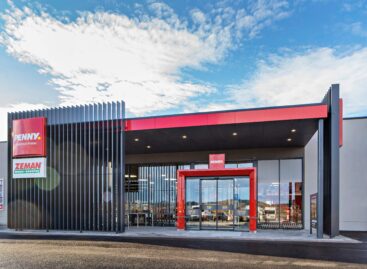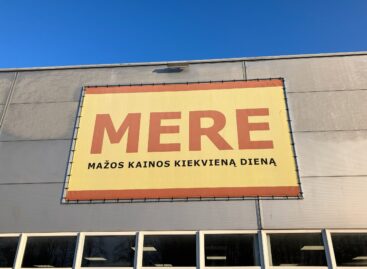Chaos, indecision and uncertainty – this is why the opening of Mere in Hungary is delayed
The opening of the first store of the Russian discount chain Mere in Hungary has been delayed for more than half a year, and there is no guarantee that the project will actually start in the near future. The reasons may be an ill-considered business strategy, teams operating in parallel but not communicating with each other, and a disregard for local market conditions – writes Telex.
Four companies, one goal, zero progress
Mere’s expansion in Hungary is being coordinated not by a single company, but by four different companies – TS Retail Kft., Hungarétel Kft., Huntorg Service Kft. and Shoper Kft. Each company has a Serbian parent company, and their majority owners are Mere founder Sergei Schneider and his brother, Andrej Schneider. The model was inspired by the operating structure of the Russian Svetofor store network, in which separate companies in each region are responsible for purchasing and operating the stores. However, in Hungary, this structure has so far caused more problems than benefits.
The four different companies set up separate teams and were forbidden from cooperating. As a result, they negotiated with the same suppliers several times, without knowing about each other’s offers, which resulted in confusion and distrust among business partners.
Unfeasible business model
Mere’s strategy in Hungary was based on the premise that their stores could only survive after a three-month trial period if they became profitable. However, the company did not want to take on the associated risk, but tried to shift it to the suppliers and the owners of the business premises. The company wanted to conclude lease agreements with or without a minimum deposit, which made renting the premises almost impossible. It would also have left the transformation of the buildings to the owners, who did not accept this.
Suppliers were also offered unfavorable contract terms: they would have to arrange the delivery of the products to the stores themselves, and Mere would only pay for the goods sold, and would return damaged or unsold products without payment. This model may work in Russia, but in Hungary the majority of suppliers rejected it.
Related news
Mere in Lithuania: Rapid growth and a hard discount niche left open by Lidl
🎧 Hallgasd a cikket: Lejátszás Szünet Folytatás Leállítás Nyelv: Auto…
Read more >Related news
Innovations, success stories and awards on the same stage
🎧 Hallgasd a cikket: Lejátszás Szünet Folytatás Leállítás Nyelv: Auto…
Read more >Farewell day at the 60th anniversary EuroShop trade fair
🎧 Hallgasd a cikket: Lejátszás Szünet Folytatás Leállítás Nyelv: Auto…
Read more >








